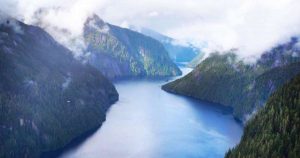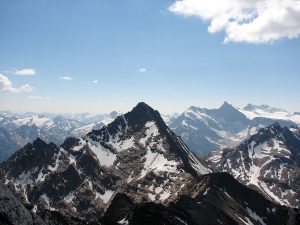
Home is an interesting concept for me. My initial reaction to the question of what home means to me was to try and define it. As I mentioned in my introductory blog I have lived in several areas of the the Lower Mainland. This includes multiple areas of Surrey, New Westminster, UBC, and Vancouver. I was thinking of all these places and trying to decide which one I truly considered to be home. Right now I live in Vancouver in the Cambie area, and I have to say it’s probably the favourite place I’ve lived in the last decade, but my parents still live in our old home in New Westminster. Is that my real home then? As it’s where my family is? I lived there longer than my current address, but can home be somewhere you don’t currently live? These are some of the questions that came to mind when thinking of home and I’ve been struggling to even come up with a definition for myself. I’m guessing this is true for others as well, and leads to me to believe that “home” is more what we make of it, than any defined thing.
Humans, or human ancestors, have been congregating and living together for 2-2.4 million years. I’m not an archaeologist, but I can imagine that this might have been done for shelter, and for safety. Evolutionarily speaking it is advantageous to have to have a space like this to work from and keep going back to, somewhere you can rely on not being in the rain and surrounded by things trying to eat you. This notion of a base is interesting to me. Why do we return to one area instead of finding a new place to live constantly? I think it is because of the memories we have there that creates this attachment to any given place. Humans are emotional beings, and studies have shown that emotions create longer lasting memories. Emotions arise from our interactions with our environment. Either we’re angry that we’re in Vancouver and it is raining YET AGAIN, or we are ecstatic that we get to go to our favourite coffee shop because Lucky’s has the BEST doughnuts. These memories, good or bad, are little micro-stories that remind us of the emotions we felt and our perception of any given place.

So, what does that mean then for my perception of home? Where have I created the strongest memories, where have I been happiest, or where do I simply have the most memories? When evaluating my different homes from this lens, I find that there isn’t really a single house that I would consider more of a “home” than the others. What I did find though, is that there is an equal connection to all of them. My first home is where I learned to ride a bike, my second is where I met my first best friend, my third is where I excelled at sport, my fourth is where I received my education, and my current home is where I am creating new memories. Home for me isn’t one house or one city, it is all of the places I’ve been. It has led to a much larger sense of home, British Columbia. When travelling abroad, the first thing I always miss is not my house, but the mountains, the sea, and the people. When I think of the mountains I think of the hundreds of hours I’ve spent hiking and exploring. When I think of the sea, I’m reminded of the camping trips with my family where my mom would call me “sharky boy” because I refused to get out of the water. Most importantly though is the people. My family of course, but I have made so many friends all over BC as well. No matter where I go, I feel like I will be welcomed into a home. All of these memories have left incredibly positive emotional marks on me. Just retelling them puts a smile on my face.
The exciting thing as well though is that this means “home” can change. If home is the memories you create, and the people you are with, you can do that anywhere. I think this idea broadens my horizons for what I could consider future home. I am not locked in one place, but I am free to experience different cities, different countries, different cultures, and different people. This is exciting because it means that wherever I end up, I know I can always be happy. Home is what you make of it.
Works Cited
University of Toronto. “Archaeological Discovery: Earliest Evidence Of Our Cave-dwelling Human Ancestors.” ScienceDaily. ScienceDaily, 21 December 2008. www.sciencedaily.com/releases/2008/12/081219172137.htm, January 28, 2019.
“Emotions and Memory: How do your emotions affect your ability to remember information and recall past memories?” Psychologist World. www.psychologistworld.com/emotion/emotion-memory-psychology, January 28, 2019.
I’m all for Lucky’s, but Cartem’s london fog donut deserves your attention.
I second that, Cartem’s London Fog is phenomenal!